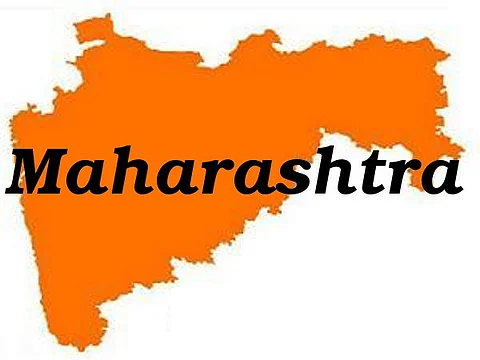

Vidarbha
Located in the eastern part of Maharashtra, Vidarbha shares its boundaries with Madhya Pradesh, Chhattisgarh, and Telangana. It includes the Nagpur and Amravati divisions, covering districts such as Nagpur, Amravati, Akola, Gondia, Bhandara, Yavatmal, Washim, Chandrapur, Gadchiroli, Wardha, and Buldhana. This region is home to the headquarters of the RSS.
Vidarbha is primarily an agricultural zone with cotton and oranges as its main produce. It receives less rainfall, making it highly prone to droughts and a hotspot for agricultural distress, accounting for half of the state's farmer suicides. It is a relatively backward region, with a per capita income 30% of the state average. The population includes 17% Scheduled Castes (SCs), 13% Scheduled Tribes (STs), and 9% Muslims. It also has the largest Buddhist population in the state (13%), largely included in the SC list.
Historically a Congress stronghold, Vidarbha saw close contests between the BJP and Congress from 1999 to 2009. The BJP overtook Congress in the 2014 elections due to the Modi wave but faced a resurgence of Congress in the 2024 general elections due to agricultural distress, unemployment, and price rises. The BJP faces pressure from allies over seat sharing and risks of rebellion but can benefit from schemes like the Ladli Laxmi Yojana.
Prominent leaders from Vidarbha include Devendra Fadnavis, Nitin Gadkari, Nana Patole, and Vijay Wadettiwar. Congress, energized by its Lok Sabha success, aims to reclaim OBC support under Patole's leadership, having formed a DMK-like coalition in 2024.
Marathwada
Marathwada, part of the Aurangabad division, is known as the Tourism Capital of India and was once part of the Hyderabad State. It includes Aurangabad, Osmanabad, Parbhani, Hingoli, Nanded, Beed, Latur, and Jalna districts, sharing borders with Karnataka and Telangana. The region's population comprises 16% SCs, 4% STs, and 15% Muslims, with a Buddhist population of 7%.
One-third of Maharashtra's Maratha population resides in Marathwada, which has been demanding reservations and inclusion in the OBC category. The unmet demand led to a significant decline in BJP's support, with their tally reducing to eight assembly seats in the 2024 general elections.
Agriculture is the main occupation, with soybean and cotton as key crops. Like Vidarbha, Marathwada also faces droughts and high farmer suicide rates. Its per capita income is 60% of the state average, and it houses just 11% of the state's large industries. Notable leaders include former CM Ashok Chavan and Pankaja Munde.
This region struggles with development backlogs, poor water supply, infrastructure, and connectivity. The reunion of the Munde cousins did not prevent BJP's loss, with Ashok Chavan and Deshmukh being key figures in the region.
Western Maharashtra
Western Maharashtra, known as the sugar bowl of the state, includes Pune, Satara, Sangli, Solapur, and Kolhapur districts. Unlike Vidarbha and Marathwada, it is agriculturally rich and has a strong cooperative sector with sugar factories, credit societies, and banks. This economically advanced region also houses the automobile and IT industries.
Traditionally dominated by Congress and the NCP, BJP led the region in 2014, but the INC-NCP combine made a comeback in 2019. In the 2024 general elections, the MVA won 35 seats, Mahayuti 30, and Others 5.
Key leaders include Ajit Pawar, Jayant Patil, and Prithviraj Chavan. Despite BJP's hopes of gains with Ajit Pawar on its side, the party faced setbacks in the general elections. Kolhapur royal Sambhaji Chhatrapati has also formed a third front challenging Sharad Pawar’s dominance.
North Maharashtra
North Maharashtra, encompassing the Nashik division, includes Nashik, Dhule, Jalgaon, and Nandurbar districts. It shares its northern border with Gujarat and has the highest number of tribals in the state. The population includes 8% SCs, 28% STs, and 8% Muslims.
Key agricultural products are grapes, bananas, and onions. The ban on onion exports became a significant issue in the 2024 general elections. While Nashik is economically developed, other districts are among the 250 most backward in the country.
To attract the tribal community, the Shabri Tribal Finance Corporation's guarantee was increased from ₹50 crore to ₹100 crore. Despite BJP's stronghold, Mahayuti led 22-13 in the 2024 general elections. Leaders to watch include Chagan Bhujbal and Khadse, who remains with NCP-SP despite plans to return to BJP.
Thane-Konkan
This region lies on Maharashtra's western coast, including Thane, Palghar, Raigad, Sindhudurg, and Kalyan districts. It is the state's third most industrialized zone, with Thane having the second highest per capita income after Mumbai. The population includes 6% SCs, 12% STs, and 11% Muslims.
Navi Mumbai, home to JNPT port and a new airport, falls in this region, which has a high migrant population working in various industries. The region has many small-scale industries producing drugs, textiles, plastics, rubber, steel, electronics, and chemicals, along with a thriving real estate market.
The undivided Shiv Sena traditionally held sway here, but post-split, CM Eknath Shinde, who hails from this region, holds considerable influence. In the 2024 general elections, Mahayuti led 27 seats to MVA's 12. Issues like high unemployment and displacement due to large infrastructure projects remain contentious.
Mumbai
Mumbai, the financial capital of India, includes Mumbai City and Mumbai Suburban districts, with 36 seats. It is 100% urban and has a per capita income three times that of Maharashtra's backward regions.
In the 2011 Census, Mumbai's population was 23.5 million, with 43.02% being migrants from states like Uttar Pradesh, Gujarat, Karnataka, Rajasthan, and Bihar.
Mumbai is a stronghold of Balasaheb Thackeray's family, with significant presence of Congress and BJP. In the 2024 elections, MVA won 4 of the 6 Lok Sabha seats, while Mahayuti won 2. Mumbai faces unique challenges such as infrastructure, housing, and transportation.
In the three direct contests between Eknath Shinde and Uddhav Thackeray factions, SHS-UBT won 2, with the third being lost by just 48 votes. However, in assembly segments, the contest was closer, with Mahayuti leading in 16 and MVA in 20 seats.
